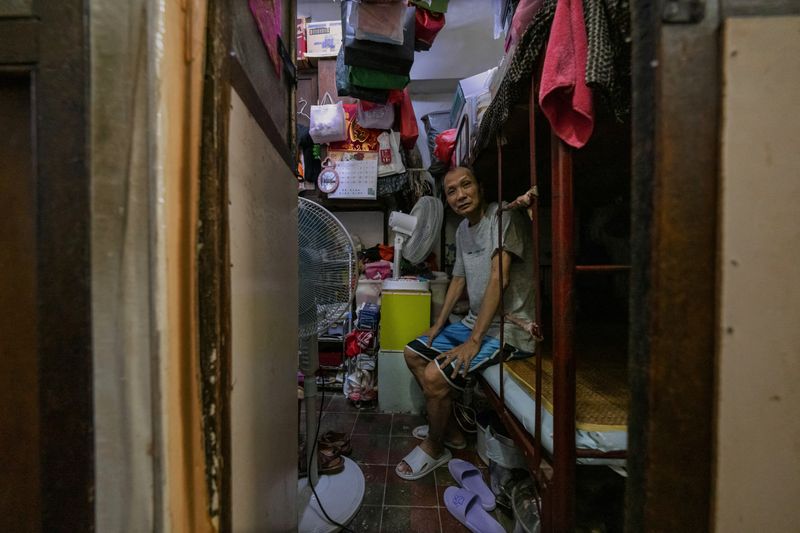Select Language

HONG KONG (Reuters) - Housing is famously cramped in the Asian financial hub of Hong Kong, thanks to sky-high property prices, but a single toilet and kitchen shared by four families would make for a challenging home situation anywhere.
"It's so small here; it's really inconvenient to live in," said retired 60-year-old Xiao Bo, as she sat on her bed, eating home-made dumplings off a folding table in a tiny space adorned with pink wallpaper and a rack of colourful tote bags.
Single and opting to give only her first name, she said she had nothing but "painful" memories of the partitioned, cluttered walk-up where she has lived for three years, but could not afford a better flat.
(For photoessay, please click on )
More than 200,000 people in Hong Kong live in sub-divided flats like hers, often cloaked in a musty odour and plagued by bedbugs during sweltering summers.
The former British colony, ranked as the world's most unaffordable city for a 14th consecutive year by survey company Demographia, has one of the world's highest rates of inequality.
In October, Hong Kong vowed to adopt new laws setting minimum space and safety norms for sub-divided flats, where each resident lives in an area of about 65 sq ft (6 sq m) on average, or half the size of the parking space for a sedan.
"We just want to regulate ... so the market will be providing flats of what we think will be a reasonable and liveable standard," its leader, John Lee, said at the time.

